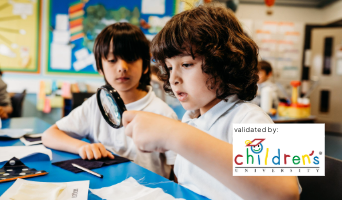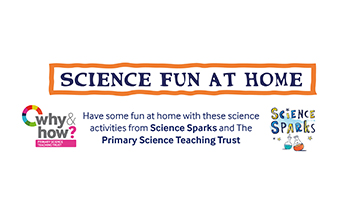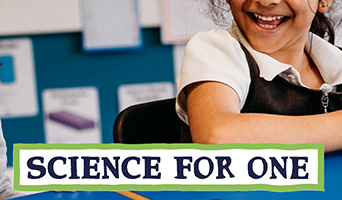Playground Science cards are deliberately semi-structured so that children can follow the suggestions if they want, but they also have the option to make their own decisions about what to do. The children can do the activities independently or with other children.

Playground Science
Outdoor Learning
5-7, 7-9, 9-12
Self-directed activities to support learning in science and add purpose and enjoyment to playtimes.
Playground Science is a set of fun and informal science activities that children can carry out in their playtimes. The activities use simple instructions and a small amount of equipment to encourage the children to explore the world around them and to develop scientific skills.
There are two sets of Playground Science bags available:
- Lower primary for younger children (roughly aged 4-7), and
- Upper primary for older children (roughly aged 7-11).
What's in the kit?
Each set of Playground Science includes:
- Five coloured drawstring bags (one each of: navy blue, turquoise, pink, orange and apple green) with space on the front to add a bespoke label to the bag (e.g. with the topic, class name, year group).
- Five printed cards to guide the children through the activity. Each card has a set of initial ideas and questions on one side, with a follow-up activity on the back. The follow-up activities are designed to encourage the children to work more scientifically.
- A teacher guide.
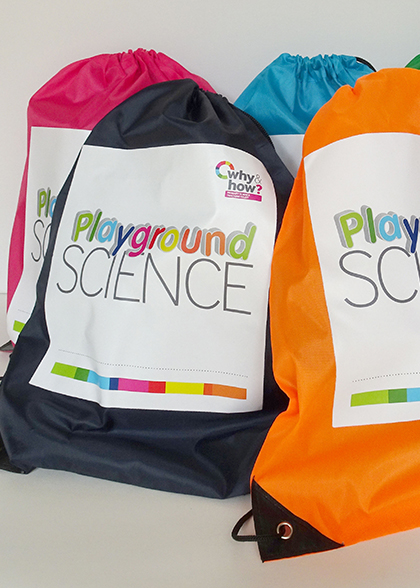
Sample cards
What do Playground Science cards look like?
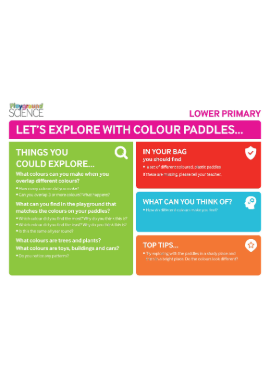
Lower primary card
Download sample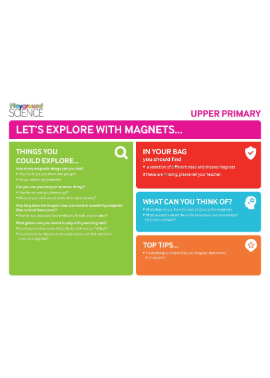
Upper primary card
Download sample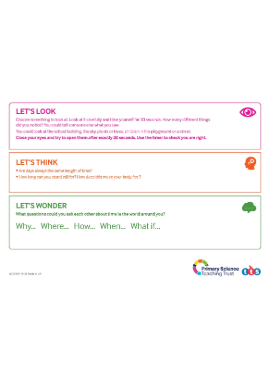
Look, Think and Wonder
Download sample